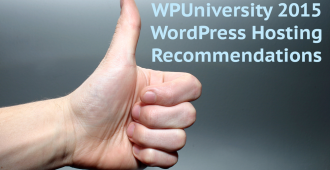This is part our series on organizing WordCamps. Check out Getting Involved: WordCamp Organizing 101 for the full series. If you’re an organizer with advice to share, or a potential organizer with questions to ask, please get in touch with us!
Raising funds is an important task. Food, drink, equipment, venue rentals, insurance… there are a lot of costs that need to be taken care of.
The official WordCamp Planning guidelines offer a good primer for fundraising — the philosophy and general approach are covered — so we’re going to address a few other points.
Are they sponsors or supporters?
Call them sponsors. “Supporters” is a broad term that can encompass everyone who helps make your WordCamp possible (volunteers, speakers, folks who helped promote the event, etc…).
“Sponsorship” is clearer: These people/organizations have provided value. In exchange, you’re giving them recognition.
But that doesn’t make them advertisers.
Repeat: WordCamp sponsors are not advertisers.
WordCamp sponsorship is not an exchange of money for marketing/advertising at the event/with the attendee audience. Sponsorships are donations, given to support the WordPress project and official events. Think of your funding sources as supporters rather than sponsors, and hopefully that will give you a gut check on whether or not your sponsor benefits are veering too far toward marketing and promotion.
Likewise: Sponsors can provide information but they cannot use persuasion tactics in their messaging. This keeps WordCamps in line with the WordPress Foundation‘s non-profit/charitable obligations.
(The Foundation oversees community initiative projects like WordPress.org and and WordCamps.)
“Who are you, and why should I care?”
Answer this question when you’re approaching sponsors.
Chances are that many of the companies you approach — especially local ones, which WordCamp Central recommends as a starting point — won’t know what a WordCamp is.
So, when you contact them, be ready to introduce the WordCamp concept.
Nail down some talking points:
- Explain that WordCamps are non-profit, community-run events.
- Examples of broad topics/interests that your WordCamp will include.
- The number of people you’re expecting to attend, and when it’ll happen.
- The demographics of your attendees (e.g. professionals, students, enthusiasts).
With that out of the way, you need to establish relevance.
Why are you approaching them?
- Are they a WordPress-based business?
- Do they have an interest in reaching your attendees?
- Would it make sense for them to be associated with WordCamp?
Consider putting together an email template that uses the above points for targeted fundraising.
A note on sponsorship levels…
“How much should we charge?”
It depends. A couple of things to consider when setting your levels:
- What are similarly-sized cities/WordCamps charging?
- What do you need to cover your costs/supplies?
What are others doing? It varies. An extreme example:
- WordCamp San Francisco 2013 ranged from $1000 – $30,000 USD.
- WordCamp Columbus 2013 ranged from $125 – $3000 USD.
“What’s the return on investment?”
The ranges above are very different, but in both cases expectations are being set. And that’s important.
Sponsors may not be advertisers, but their contributions — whether cash or in-kind — are still a cost. Let them know what sort of recognition they’ll be getting in return.
